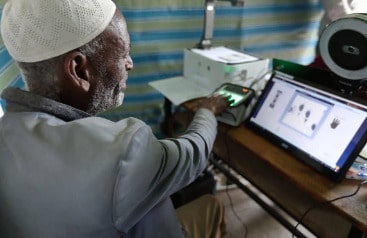In the near future, all Ethiopians seeking government services will have to present a digital ID, the executive director of the Ethiopia National ID program (NIDP), Yohade Zemichael, is quoted as telling local news portal Shega in an interview.
According to Zemichael, the move is part of a government plan to ensure that all government services are integrated into the digital ID.
Although under four million people have so far been enrolled for the digital ID dubbed Fayda, the country expects to register 90 million eligible citizens by 2028. The initial deadline for this target was 2025, but that is no longer possible as the process has witnessed significant delays.
While the Digital ID Proclamation okayed by Parliament last year doesn’t make enrollment for digital ID a mandatory exercise, the legislation gives government and private institutions the right to deny service for lack of the ID.
NIDP has taken a series of steps in the last months as part of its plan to expand the use of Fayda. Apart from making the digital ID a compulsory credential for civil servants and for students, the authority has also sealed a number of deals with some UN agencies to speed up the digital ID adoption, especially for groups like children and forcibly displaced persons. NIDP also has a collaboration with banks to step up enrollment for digital ID.
The Federal Ministry of Justice also recently said in a statement posted to its Facebook page that plans are underway to soon make it mandatory for citizens to present a digital ID before having access to any service from the ministry.
Ethiopia recently had $350 million in funding from the World Bank for a “Digital ID for Inclusion and Services Project” that aims to facilitate access to digital ID for millions of citizens. Part of the money is expected to be invested in developing other components of the country’s digital public infrastructure ecosystem such as instant digital payments services and an interoperable data exchange platform.
Article: Ethiopia to make digital ID compulsory for access to government services
